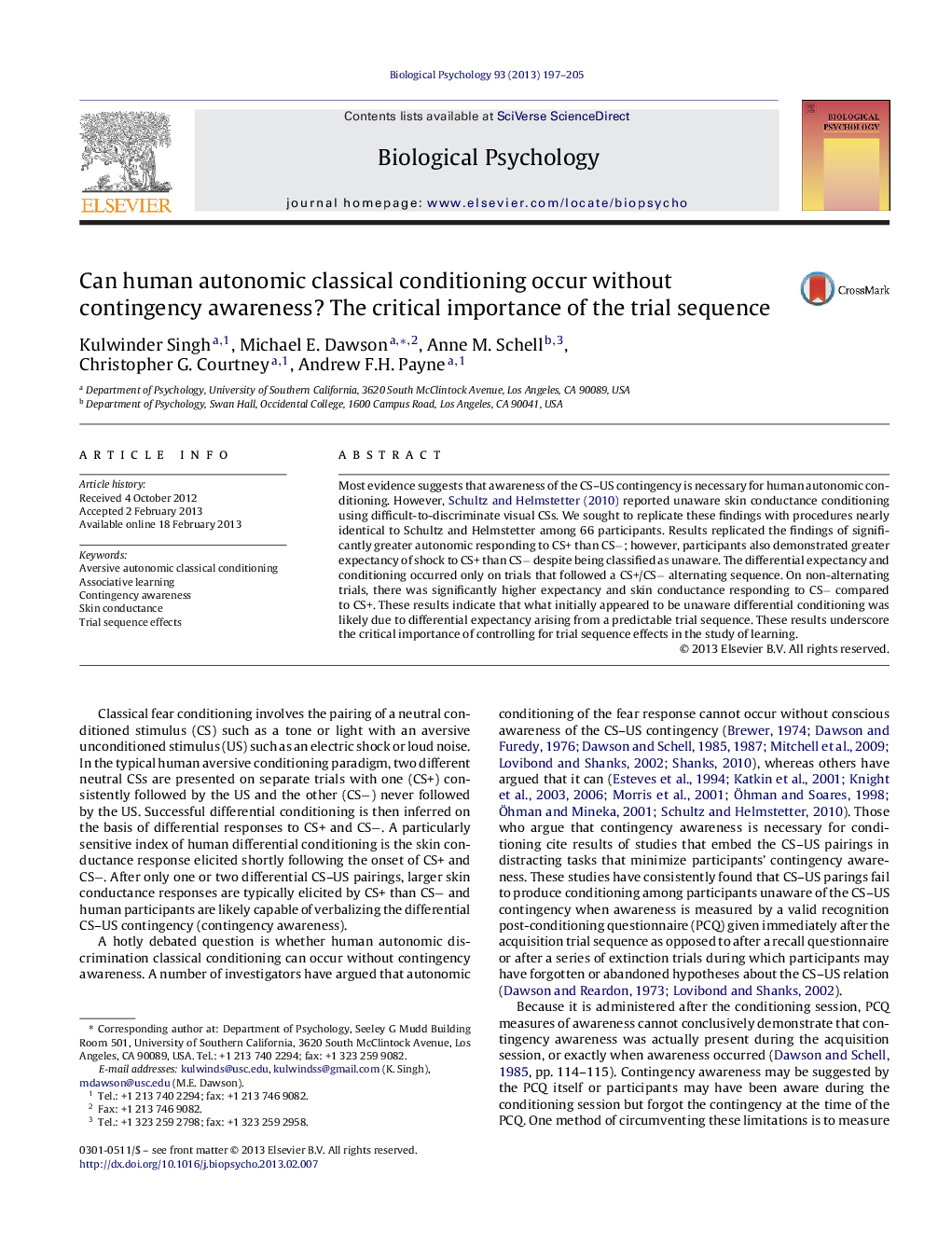| کد مقاله | کد نشریه | سال انتشار | مقاله انگلیسی | نسخه تمام متن |
|---|---|---|---|---|
| 921000 | 920744 | 2013 | 9 صفحه PDF | دانلود رایگان |

Most evidence suggests that awareness of the CS–US contingency is necessary for human autonomic conditioning. However, Schultz and Helmstetter (2010) reported unaware skin conductance conditioning using difficult-to-discriminate visual CSs. We sought to replicate these findings with procedures nearly identical to Schultz and Helmstetter among 66 participants. Results replicated the findings of significantly greater autonomic responding to CS+ than CS−; however, participants also demonstrated greater expectancy of shock to CS+ than CS− despite being classified as unaware. The differential expectancy and conditioning occurred only on trials that followed a CS+/CS− alternating sequence. On non-alternating trials, there was significantly higher expectancy and skin conductance responding to CS− compared to CS+. These results indicate that what initially appeared to be unaware differential conditioning was likely due to differential expectancy arising from a predictable trial sequence. These results underscore the critical importance of controlling for trial sequence effects in the study of learning.
► Aware participants demonstrated conditioning and greater shock expectancy to CS+.
► Unaware participants appeared to show differential skin conductance conditioning.
► However, unaware participants expected shock significantly more to CS− than CS+.
► Unaware participants did not show conditioning on non-alternating CS trials.
► The apparent “unaware conditioning” was due solely to a predictable trial sequence.
Journal: Biological Psychology - Volume 93, Issue 1, April 2013, Pages 197–205